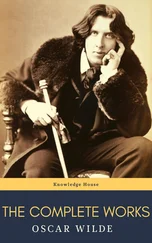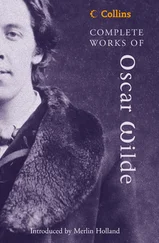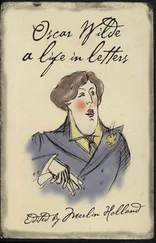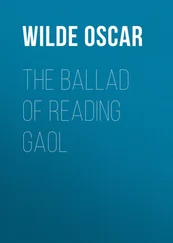It may seem paradoxical to quote in connection with the priest of Chaeronea such a pure rationalist as Mr. Herbert Spencer; yet when we read as the last message of modern science that ‘when the equation of life has been reduced to its lowest terms the symbols are symbols still,’ mere signs, that is, of that unknown reality which underlies all matter and all spirit, we may feel how over the wide strait of centuries thought calls to thought, and how Plutarch has a higher position than is usually claimed for him in the progress of the Greek intellect.
And, indeed, it seems that not merely the importance of Plutarch himself but also that of the land of his birth in the evolution of Greek civilisation has been passed over by modern critics. To us, indeed, the bare rock to which the Parthenon serves as a crown, and which lies between Colonus and Attica’s violet hills, will always be the holiest spot in the land of Greece: and Delphi will come next, and then the meadows of Eurotas where that noble people lived who represented in Hellenic thought the reaction of the law of duty against the law of beauty, the opposition of conduct to culture. Yet, as one stands on the  1of Cithaeron and looks out on the great double plain of Boeotia, the enormous importance of the division of Hellas comes to one’s mind with great force. To the north is Orchomenus and the Minyan treasure house, seat of those merchant princes of Phoenicia who brought to Greece the knowledge of letters and the art of working in gold. Thebes is at our feet with the gloom of the terrible legends of Greek tragedy still lingering about it, the birthplace of Pindar, the nurse of Epaminondas and the Sacred Band.
1of Cithaeron and looks out on the great double plain of Boeotia, the enormous importance of the division of Hellas comes to one’s mind with great force. To the north is Orchomenus and the Minyan treasure house, seat of those merchant princes of Phoenicia who brought to Greece the knowledge of letters and the art of working in gold. Thebes is at our feet with the gloom of the terrible legends of Greek tragedy still lingering about it, the birthplace of Pindar, the nurse of Epaminondas and the Sacred Band.
And from out of the plain where ‘Mars loved to dance,’ rises the Muses’ haunt, Helicon, by whose silver streams Corinna and Hesiod sang. While far away under the white aegis of those snow-capped mountains lies Chaeronea and the Lion plain where with vain chivalry the Greeks strove to check Macedon first and afterwards Rome; Chaeronea, where in the Martinmas summer of Greek civilisation Plutarch rose from the drear waste of a dying religion as the aftermath rises when the mowers think they have left the field bare.
Greek philosophy began and ended in scepticism: the first and the last word of Greek history was Faith.
Splendid thus in its death, like winter sunsets, the Greek religion passed away into the horror of night. For the Cimmerian darkness was at hand, and when the schools of Athens were closed and the statue of Athena broken, the Greek spirit passed from the gods and the history of its own land to the subtleties of defining the doctrine of the Trinity and the mystical attempts to bring Plato into harmony with Christ and to reconcile Gethsemane and the Sermon on the Mount with the Athenian prison and the discussion in the woods of Colonus. The Greek spirit slept for wellnigh a thousand years. When it woke again, like Antaeus it had gathered strength from the earth where it lay, like Apollo it had lost none of its divinity through its long servitude.
In the history of Roman thought we nowhere find any of those characteristics of the Greek Illumination which I have pointed out are the necessary concomitants of the rise of historical criticism. The conservative respect for tradition which made the Roman people delight in the ritual and formulas of law, and is as apparent in their politics as in their religion, was fatal to any rise of that spirit of revolt against authority the importance of which, as a factor in intellectual progress, we have already seen.
The whitened tables of the Pontifices preserved carefully the records of the eclipses and other atmospherical phenomena, and what we call the art of verifying dates was known to them at an early time; but there was no spontaneous rise of physical science to suggest by its analogies of law and order a new method of research, nor any natural springing up of the questioning spirit of philosophy with its unification of all phenomena and all knowledge. At the very time when the whole tide of Eastern superstition was sweeping into the heart of the Capitol the Senate banished the Greek philosophers from Rome. And of the three systems which did at length take some root in the city, those of Zeno and Epicurus were merely used as the rule for the ordering of life, while the dogmatic scepticism of Carneades, by its very principles, annihilated the possibility of argument and encouraged a perfect indifference to research.
Nor were the Romans ever fortunate enough like the Greeks to have to face the incubus of any dogmatic system of legends and myths, the immoralities and absurdities of which might excite a revolutionary outbreak of sceptical criticism. For the Roman religion became as it were crystallised and isolated from progress at an early period of its evolution. Their gods remained mere abstractions of common-place virtues or uninteresting personifications of the useful things of life. The old primitive creed was indeed always upheld as a state institution on account of the enormous facilities it offered for cheating in politics, but as a spiritual system of belief it was unanimously rejected at a very early period both by the common people and the educated classes, for the sensible reason that it was so extremely dull. The former took refuge in the mystic sensualities of the worship of Isis, the latter in the Stoical rules of life. The Romans classified their gods carefully in their order of precedence, analysed their genealogies in the laborious spirit of modern heraldry, fenced them round with a ritual as intricate as their law, but never quite cared enough about them to believe in them. So it was of no account with them when the philosophers announced that Minerva was merely memory. She had never been much else. Nor did they protest when Lucretius dared to say of Ceres and of Liber that they were only the corn of the field and the fruit of the vine. For they had never mourned for the daughter of Demeter in the asphodel meadows of Sicily, nor traversed the glades of Cithaeron with fawn-skin and with spear.
This brief sketch of the condition of Roman thought will serve to prepare us for the almost total want of scientific historical criticism which we shall discern in their literature, and has, besides, afforded fresh corroborations of the conditions essential to the rise of this spirit, and of the modes of thought which it reflects and in which it is always to be found. Roman historical composition had its origin in the pontifical college of ecclesiastical lawyers, and preserved to its close the uncritical spirit which characterised its fountainhead. It possessed from the outset a most voluminous collection of the materials of history, which, however, produced merely antiquarians, not historians. It is so hard to use facts, so easy to accumulate them.
Wearied of the dull monotony of the pontifical annals, which dwelt on little else but the rise and fall in provisions and the eclipses of the sun, Cato wrote out a history with his own hand for the instruction of his child to which he gave the name of Origines, and before his time some aristocratic families had written histories in Greek much in the same spirit in which the Germans of the eighteenth century used French as the literary language. But the first regular Roman historian is Sallust. Between the extravagant eulogies passed on this author by the French (such as De Closset), and Dr. Mommsen’s view of him as merely a political pamphleteer, it is perhaps difficult to reach the via media 1of unbiassed appreciation. He has, at any rate, the credit of being a purely rationalistic historian, perhaps the only one in Roman literature. Cicero had a good many qualifications for a scientific historian, and (as he usually did) thought very highly of his own powers. On passages of ancient legend, however, he is rather unsatisfactory, for while he is too sensible to believe them he is too patriotic to reject them. And this is really the attitude of Livy, who claims for early Roman legend a certain uncritical homage from the rest of the subject world. His view in his history is that it is not worth while to examine the truth of these stories.
Читать дальше
Конец ознакомительного отрывка
Купить книгу

 1of Cithaeron and looks out on the great double plain of Boeotia, the enormous importance of the division of Hellas comes to one’s mind with great force. To the north is Orchomenus and the Minyan treasure house, seat of those merchant princes of Phoenicia who brought to Greece the knowledge of letters and the art of working in gold. Thebes is at our feet with the gloom of the terrible legends of Greek tragedy still lingering about it, the birthplace of Pindar, the nurse of Epaminondas and the Sacred Band.
1of Cithaeron and looks out on the great double plain of Boeotia, the enormous importance of the division of Hellas comes to one’s mind with great force. To the north is Orchomenus and the Minyan treasure house, seat of those merchant princes of Phoenicia who brought to Greece the knowledge of letters and the art of working in gold. Thebes is at our feet with the gloom of the terrible legends of Greek tragedy still lingering about it, the birthplace of Pindar, the nurse of Epaminondas and the Sacred Band.










